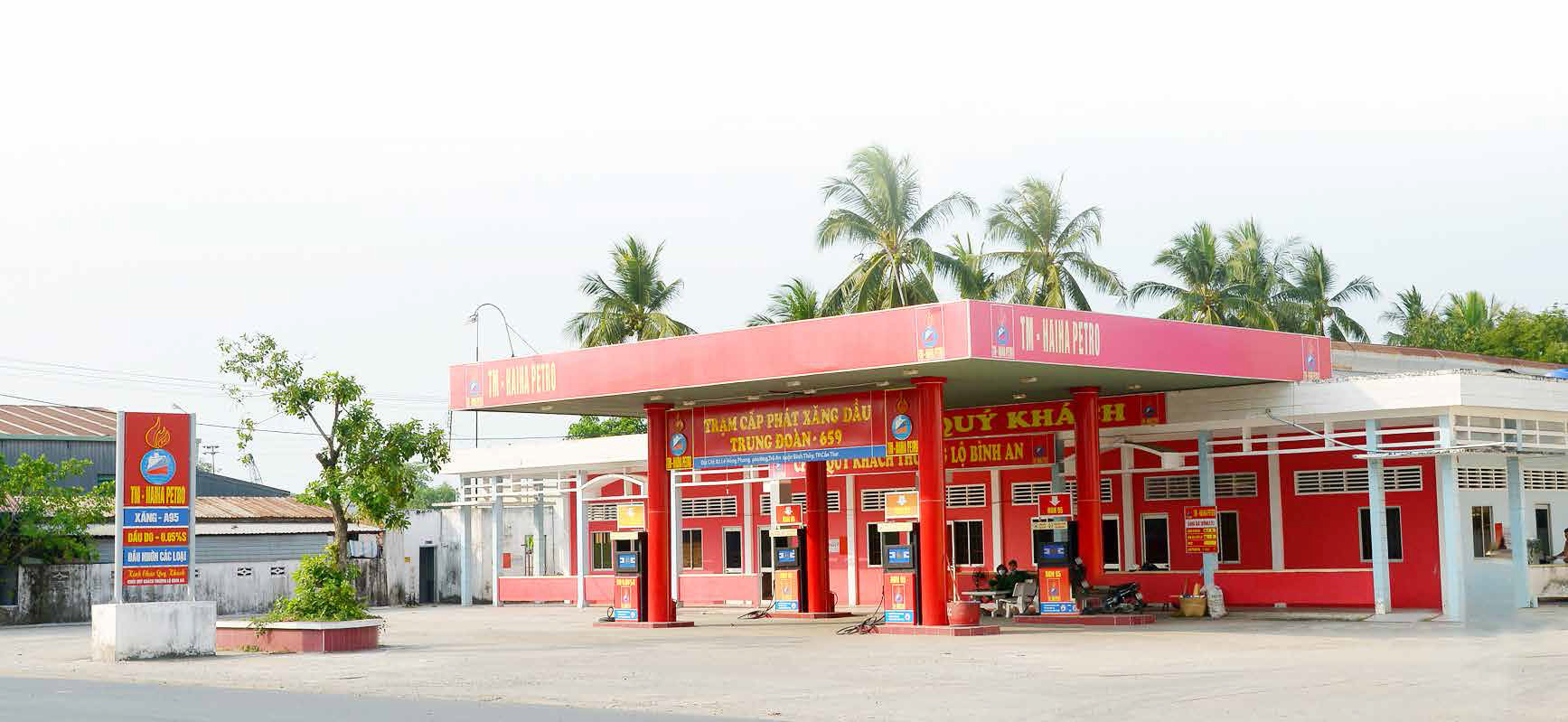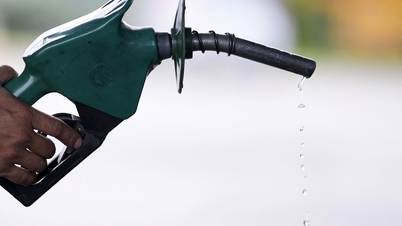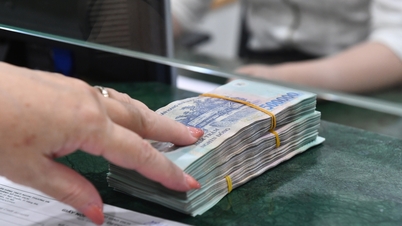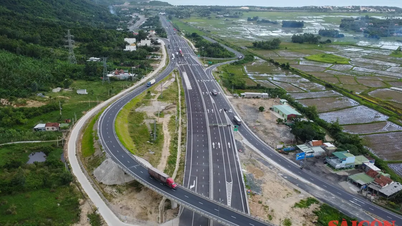Editor's note: Tax debts, tax evasion, smuggling, appropriation of the Petroleum Price Stabilization Fund... are the dark corners of many petroleum key enterprises. The reason for letting these enterprises with weak business capacity slip through is believed to be largely due to the licensing process.
The series of articles "The Hidden Corners of the Petroleum 'Giants'" by VietNamNet hopes to contribute more voices to the health and screening of the petroleum market, to protect consumer rights, the development of legitimate petroleum businesses, and to ensure national energy security.
Regarding the financial health of petroleum key enterprises, the large tax debt situation, and assets mainly rented to legalize conditions, PV. VietNamNet had an interview with Dr. Giang Chan Tay - an "insider".
Mr. Giang Chan Tay is a Doctor of Economic Management and also the director of a company specializing in petroleum retail business. During the time when the petroleum market was disrupted in terms of supply, he attended many meetings of the National Assembly's Economic Committee and the Vietnam Federation of Commerce and Industry and gave remarkable presentations.
Inadequate management policies lead to businesses owing huge tax debts.
- Holding a part of the responsibility of ensuring national energy security, many petroleum key enterprises are in huge tax debt, and their assets are mainly rented... What is your comment on such key enterprises?
Dr. Giang Chan Tay: The source of gasoline tax is formed based on the basic price structure, which includes the following taxes: import tax (9.78% for gasoline, 0.72% for oil); environmental protection tax (2,000 VND/liter for gasoline, 1,000 VND/liter for oil); special consumption tax (10% for gasoline, 0% for oil); value added tax (10% for gasoline).
According to current regulations, to be circulated on the market, each liter of gasoline must ensure payment to the state budget corresponding to the above rate.
In case the main enterprise owes a huge debt to the budget, we need to consider what kind of taxes they owe? One, two or all of them.

State management agencies must review and inspect to clearly identify the main causes of tax arrears in enterprises, thereby taking measures to handle and prevent enterprises from abusing the tax payable.
In the end, the core problem is still the lack of financial resources and financial policies for the petroleum industry, leading to a situation where businesses are starved of capital and have difficulty accessing it. In order to survive and develop, businesses tend to retain the tax they have to pay to the budget for a period of time to temporarily appropriate, supplement capital sources and solve related problems.
It was thought that doing so would help them take advantage of financial resources to cover expenses, however, market fluctuations and the calculation of basic gasoline prices as well as related costs were not fully calculated, calculated correctly or updated promptly by the authorities, causing businesses to suffer prolonged losses. They lost balance in revenue, expenditure and cash flow.
If the business is consistently effective, financially strong, and has abundant cash resources, then surely no business would want to misappropriate state taxes and get into trouble, be fined, or even prosecuted.
The second possibility is that they may have made a mistake in their investment decisions. They may have invested in ineffectively outside the industry, so they cannot (yet) have enough money to pay the above tax. This possibility is rare and the impact is not much.
In my opinion, the main reason why most businesses are facing financial difficulties due to the inappropriate and inadequate management policies of the petroleum industry, resulting in the misappropriation of tax money and the Price Stabilization Fund.
Some cases of large tax debts arise due to long-term debt and inability to pay, so the tax debt grows larger and larger, and businesses without enough financial resources will collapse and be unable to repay.
- What are the consequences of this situation, sir?
This is extremely dangerous because the consequence is that the business will lose its ability to pay, regardless of what happens. This is an unpredictable consequence. I think that financial and tax managers need to urge and have measures to collect taxes, promptly prevent tax arrears and limit outstanding tax debts, report to superiors to find the cause for timely resolution.
In addition to taxes, the Petroleum Price Stabilization Fund located at enterprises is also a shortcoming that can easily cause enterprises to violate and misappropriate, leading to other consequences.
The biggest responsibility for the above situation lies with state management. Why is it that the amount of gasoline that has not fully fulfilled its tax obligations is allowed to circulate in the market? What loopholes in tax regulations have the key enterprises taken advantage of to allow the tax debt to drag on for so long that it is only now being exposed? Besides the key enterprises, is there anyone else who has assisted and benefited from the tolerance?

- Is the fact that key enterprises responsible for supplying petroleum to the economy but have weak financial capacity one of the causes of instability in petroleum supply?
The main enterprises cannot fulfill their responsibility of supplying petroleum to the economy for the following reasons:
Firstly , importing gasoline and oil often brings bad profits due to: import time, customs clearance, market prices - especially retail pricing - not being beneficial to businesses, leading to ineffective business, financially exhausting businesses and degrading the national energy system.
Second , the fact that key enterprises buy and resell petroleum imported by state-owned key enterprises for domestic circulation often helps them earn better profits.
Third , it is possible to act as a "backyard" for state-owned enterprises or other import enterprises to transfer prices and consume technically processed gasoline and oil.
For the above reasons, there are key enterprises established, which in reality do not need any financial capacity, to carry out legalized commercial activities or act as "backyards" for other key enterprises.
It is this large number of key enterprises that causes the source of gasoline to not increase but only circulates in the market and takes over the standard profit and business costs - which belong to the retail enterprises.
Passing the licensing test: Similar to cheating in exams
- In your opinion, why are such weak businesses allowed to become key enterprises?
Obviously, the licensing conditions under Decree 83 or Decree 95 are just a formality if the enterprise somehow fails to obtain the certification. It is almost like a form of cheating in the exam. When the enterprise has passed and "got the certificate", it will form the idea that no one will "take away the certificate" from it.
The management agency needs to carefully consider this licensing issue to avoid the consequences that VietNamNet has reported in recent articles. In general, management must have criteria and needs to be checked and controlled to maintain the criteria regularly and continuously. Recently, this work has not received due attention.
- Is it true that the Ministry of Industry and Trade needs to have a more careful screening when granting licenses to petroleum key enterprises?
The most important thing is that the focal enterprise does not need to be many, but needs to have strong financial potential, fully meet the licensing conditions to be given priority and have a wide range of operations. Limit the regulations on rented assets to the lowest level. It is necessary to strictly regulate and assess the percentage of rented assets!
In my opinion, leased assets should not exceed 30% of the existing assets of the enterprise. It is the abuse of leased assets and the too easy recognition of leased assets to legitimize procedures that has let weak enterprises slip through but take on important tasks in the national energy system - the cause of many current pressing problems.
- In order to have key petroleum trading enterprises with sufficient financial potential and to truly undertake the supply of petroleum, in your opinion, what solutions do management agencies need to have?
It is necessary to strictly regulate the financial criteria and the existing assets owned by the business applying for the license. If they do not have enough capacity, they can cooperate with strong distributors with good financial potential to become a main trader, which is very good.
It is very good for many financial potential traders to join forces to form a super wholesaler. The petroleum market will be strong and develop.
The regulation should be similar to the US Nasdaq stock exchange, which requires a company's capitalization to be at least 500 million USD to be traded on the exchange; Nasdaq also continuously checks and warns on the financial management system. Capitalization is the value of the enterprise as determined by the market at that time, not by the enterprise itself.
- Thank you for the chat!
Lesson 1: The hidden corners of a series of oil and gas giants: Billions in tax debt, boss proposed to be banned from leaving the country
Lesson 2: Hundreds of billions of the Petroleum Price Stabilization Fund were appropriated: Ignoring warnings, risk of losing everything
Lesson 3: Inferior to the oil giants, retail businesses are haunted by the fear of working for free
Source





![[Photo] President of the Cuban National Assembly visits President Ho Chi Minh's Mausoleum](https://vphoto.vietnam.vn/thumb/1200x675/vietnam/resource/IMAGE/2025/10/1/39f1142310fc4dae9e3de4fcc9ac2ed0)
![[Photo] Keep your warehouse safe in all situations](https://vphoto.vietnam.vn/thumb/1200x675/vietnam/resource/IMAGE/2025/10/1/3eb4eceafe68497989865e7faa4e4d0e)
![[Photo] Hanoi morning of October 1: Prolonged flooding, people wade to work](https://vphoto.vietnam.vn/thumb/1200x675/vietnam/resource/IMAGE/2025/10/1/189be28938e3493fa26b2938efa2059e)





























































































Comment (0)